
Sound Vision: Why did you develop the Quranic Arabic program? What did you see lacking in existing resources for English-speaking Muslims to learn Quranic Arabic?
Abdul Wahid Hamid: There is a widespread and keenly felt need all over the world among Muslims to be able to read the Quran and understand it. I don't mean in translations. For the majority of people in the world today where English dominates, the message of the Quran remains sadly inaccessible in its own language.
There are now several published textbooks and some audio-visual material for learning Arabic. Many are intended for travelers to the Middle East and are practically useless. Interestingly, there are many courses on colloquial Arabic and Middle Eastern dialects which will ultimately be extremely harmful to the promotion of proper Arabic. There are also several elementary Arabic grammar books, a few of which are very good, but the vocabulary is based on modern Arabic and Arabic for daily living and are therefore not ideal for people whose main concern is to be able to read and understand the Quran. Using these books is often the start of a long and very circuitous road to getting to the destination of understanding even something of the Quran. And most people, even after years of effort and false starts and effort, never get there.
In recent years, there have been some commendable attempts to devise Arabic programs based on the Quran, but most of these either require a skilled teacher at every stage, or they make the process of learning very difficult indeed.
What I have sought to do in Access to Quranic Arabic is to devise a course that is as user-friendly as possible. Both content and design I believe are crucial, especially when dealing with two very different types of script.
Access to Quranic Arabic assumes that people can read and write the Arabic script. We have prepared some other materials for reading and writing the Arabic script. It should not take more than a month - even for children about seven years old and above to be able to read and write the Arabic script. It is so logical, and beautiful. Reading and writing should go hand in hand in all Arabic programs - even from an early age. This process need not be linked to understanding the language. In fact reading and writing the script can be mastered much more quickly without trying to understand the language at the same time.
In Access to Quranic Arabic, I wanted to have a course that was based entirely on the Quran, using Quranic examples only to illustrate all points of grammar and structure. All the exercises in the program should also use Quranic vocabulary, grammar and structure throughout.
What I have also tried to do is to devise a course that would give the learner a great feeling of achievement, to be able to understand actual Quranic texts very early on in the course through the careful choice of Quranic passages and through using the principle of word frequency in the Quran. It is such a wonderful feeling to know that after just one or two weeks of study, you can actually read and understand portions of the Quran and be able to comment in some detail on the grammar and structure of what you read as well.
It is important to emphasize that Access to Quranic Arabic is, as it name implies, only a foundation for the further study of the Quran and of Arabic in general. It aims to give people the essential tools to be able to do this largely on their own, or to derive maximum benefit from further courses they may attend in institutions whether they be in the Arabic-speaking world or elsewhere. There are now quite a few places in the Middle East where such courses are offered. Some of these are short intensive courses and they are getting better in content and in presentation. Still, these are in no way comparable to the extent of resources and effort that continue to be devoted, for example, to promoting English or even French throughout the world. There is so much that remains to be done.
On a personal note, I would like to say that I could not even read the Quran in its original Arabic script until I was eighteen years old. My only experience of traditional Islamic learning was very brief. At the age of six, along with my three elder brothers, we sent to a mosque ‘maktab' - another name for a madrasah or school in my native Trinidad. On one of the first afternoons at this maktab, the teacher hit me - I didn't know why. I went to my eldest brother no doubt in a state of distress. He got up, called my other two brothers and we all walked out of the maktab. We never went back. Later, my father tried to get us a tutor but this arrangement was erratic and eventually I told him that I would only learn the Arabic if I could understand what I was reading. But there was not a single person in the community who knew Arabic as a language. This was in the fifties - decades ago - but substantially, this sort of experience remains true for the bulk of English-speaking Muslims in the world. I am grateful to Brother Abdul Qayyum Khan from Guyana who now resides in Toronto who taught me to read and write the Arabic script in a few weeks and who lit a spark which has continued to burn.
The Quran has been, is and will remain the most important book for humanity. It is the most widely read book in the world and it is the most memorized. Yet, the vast majority of those who read it and memorize it do not understand it and so it remains largely, and sadly, inoperative in our lives. While English translations of the Quran are useful and even necessary in some cases, there is no substitute for going back to the original and experiencing a direct link with Reality.
SV: What was the driving force behind Islam the Natural Way?
AWH: I was asked by Dr Abdullah Omar Nasseef whom I have known from our student days in England and who was the Secretary General of the Muslim World League in Makkah in the mid-eighties to write a book in simple English on Mu'aamalaat or Transactions and Relationships in Islam mainly for the benefit of Muslims in places like Africa. I agreed, but after some thought, I realized that it was impossible to write about business dealings or indeed any other type of relationships without first dealing with the values and the principles which underpinned these relationships. At the heart of so many of these relationships, for example, is the very basic question: to whom or to what is responsibility ultimately due?
At the same time, I realized that there wasn't a book on Islam in general which dealt with many of the issues and questions that young people were asking and which kept on coming up during classes I was teaching. This for example required looking at such basic things as the ‘Five Pillars' not in isolation and as ends in themselves, but as means to a greater end. And there also were many questions that I needed to find answers for, for myself. And, of course, the more you go into Islam and the more you go into Arabic Islamic terminology you would find such a beautiful coherence and an inter-locking relationship between beliefs and values, relationships and ordinarily mundane things, and acts of worship.
The challenge was to treat of each part of the tapestry of Islam while keeping in view the total picture of what it's all about. Part of the challenge also was to write a book that would be intelligible to a person, whether Muslim or non-Muslim, living in our times - a book that was authentic but forthright, credible and persuasive, and lively.
SV: What criteria did you use to select the 60 Sahabah that you used in your series, Companions of the Prophet?
AWH: The Companions of the Prophet, may Allah be pleased with them, were ordinary people who, when touched by the clarity and power of the Quran and the grace of the Prophet, were transformed into outstanding men and women with the capacity to inspire and change the course of history. They came from all sorts of backgrounds - noblemen and slaves, townspeople and bedouins, traders and herdsmen, poor and rich. They had a variety of talents and temperaments. In selecting the sixty Companions, I aimed to convey something of this rich and diverse background and to show that they were human beings having many of the strengths and frailties of human beings. I also aimed to show their talents and resources were used in a variety of ways in the path of truth and goodness and in all sorts of testing situations.
Some attention was given to choosing lesser known companions in as much as many of the major personalities like Khadijah, Abu Bakr, Umar, Uthman, and Ali are very well-known. Another consideration was to include many women and to show what a pivotal and outstanding role they performed in early Muslim history.
The series was aimed essentially at young people, to give them something worthwhile and inspiring to read, instead of, for example, the series of western novels by Zane Grey and others which formed part of my staple reading diet as a teenager.
There remains a wealth of personalities and material in Muslim history, past and contemporary, which needs to be written about and form part of our collective historical consciousness.
SV: What personalities have had the most impact on you (both alive and in the past) and how?
AWH: Undoubtedly, I must start with my parents, may Allah bless them. They were hardworking people and lived a simple and frugal life. Their knowledge of Islam - so far as book knowledge was concerned was not great but they had a strong and passionate attachment to the diin. They were very practical people and lived through difficult times and it was at their hands that we acquired a wide variety of skills - from building to planting crops and rearing animals and small scale trading - and the values that we cherish. My father for example would prefer to go without something than to borrow. Debt was something he avoided like the plague. This is why it took him about twelve years to build the house that we lived in, brick by brick. My mother could count very well and although she only learnt to read and write late in life, she was determined that we should have an education.
I had my first job as a primary school teacher in Trinidad and I was put under the supervision of two excellent teachers, one of whom was Mr Sadick Ramzan Ali from whom I learnt a great deal. He was a constant source of encouragement and maintained high professional standards, He was also involved in youth and community work and living the life a Muslim seemed easy and natural for him. He performed all his duties well without having any ‘airs and graces'.
I went to London, after a one year stay in Egypt at the Al-Azhar - with the intention of doing a degree in English Literature. I did a pre-university course in History. One of my teachers was a Mr Dean, an Englishman who always seemed to wear the same chequered jacket, patched at the elbows. He taught European and English Social History as if people mattered. He was a socialist and partly under his influence I joined the Labour Party in the mid-sixties but left it in disgust over the Wilson's government handling of the Rhodesia question. Anyway, this Mr Dean made me look at the world in a way I had never done before and opened up perspectives which as a very insular person coming from a very small island, were new to me. He made me realize the importance of history and how very little I knew of how the world as we knew it was shaped. It was largely through him that I decided to change from English and Latin to History at university.
My first years at University reading history with special reverence to the Middle East (in addition to Arabic and French) were often times of acute anguish. The head of our department was Professor Bernard Lewis who is now at Princeton. He is a very sophisticated person with a powerful and often sharp pen. His book, The Arabs in History, was a standard text. Reading it was very painful. I did not know at the time that he was an ardent Zionist. Many of the other teaching staff there were also not at all exactly partial to Islam and Muslims. I searched the university library shelves for books and writings that would give me some alternative to the received wisdom that was being handed down to us. It was at this time that I came across a little booklet called ‘English-speaking Orientalists' by Dr Abdul Latif Tibawi, a meticulous Palestinian scholar who had a persuasive and at times an acerbic pen. This booklet restored my faith. I later had on a few occasions the pleasure of meeting Dr Tibawi who originally came from Palestine . He didn't suffer fools gladly even if they were professors and experts. He set himself very high academic standards. He output was great, both in Arabic and English. Later, while working as a journalist, it was nice to know that he read some of my published pieces on the Middle East and made some encouraging (dare I say ‘favorable') comments. He remains one of the largely unsung Muslim academics. He was run over by a car at a pedestrian crossing close to the University where he worked. He had a house in Surrey called ‘Sakinah' or Tranquility. May Allah grant him tranquility.
Another person who has had a great impact on me was a fellow student, Ebrahimsa Mohammed. He is a quiet, unassuming person and one of the most well-informed and practical persons around. He came to London from Penang in Malaysia to study law, His law studies fell by the wayside as he took it upon himself to look after the needs of students who started coming to the UK in substantial numbers from the early sixties onwards. He made it his business to get to know Muslim students in all parts of the country, put them in touch with one another and where they needed help, financial or otherwise, he would arrange something. He was one of the founders and early presidents of FOSIS - The Federation of the Students Islamic Societies in the UK & Eire. I had the privilege of being its General Secretary under his presidency. I can honestly say that I learnt more from being in this milieu than from the academic courses at university. Brother Ebrahimsa not only knew students but scholars and activists at all sorts of levels in Britain, from the big names in the Muslim world - Muhammad Natsir, Mawdudi, Said Ramadan, philantropists like Ebrahim Bawany, Malcolm X and many others including even even more notorious guys like Michael X. He is extremely widely read and maintains an abiding and passionate interest in making the best use of resources and in helping the poor and downtrodden. One of my recent meetings with him was at a gardening centre in north London shovelling horse manure - he is very much into organiic foods and healthy eating.
Another person who has had an enormous impact on me and many student contemporaries is Dr Jafer Sheikh Idris from the Sudan. We got to know him in the late sixties when he was a Ph. D in England doing a thesis on Causality. We were part of something called the London Islamic Circle and met every Saturday at the old Regents Park Mosque. Over a period of several weeks Dr Jafer gave us a series of talks on the Quran. These were the most wonderful talks and study sessions that I had ever listened to and participated in. In one of them, Dr Jafer talked about the thematic coherence of the Quran and this had the effect of banishing any notions of the Quran as a haphazard and repetitive book with all sorts of things and themes thrown together in a random (a common impression of those who read mere translations). In addition, it had the effect of spurring us to study the Quran in its original Arabic.
We also learnt a great deal from Dr Jafer who has a clear and incisive mind. And you can't meet someone more charming and approachable, someone who could talk to little children and hold his own against the best philosophers at the same time. Dr Jafer is still active in educational work and we pray that Allah will give him the strength and the zeal to allow some of his great gifts to continue to rub off on others.
SV: What place do you se the Muslim communities in North America and Europe taking in world history? What about Muslims in Muslim countries?
AWH: It has been said that in the past people on the frontiers of the Muslim state have often played the most dynamic role in the advancement of Muslim civilization. Whereas the core, stability may often be read as staleness and inertia, at the frontiers there is challenge and thrust at the cutting edges. If this is true, Muslims in the traditional heartlands of Islam are doomed. (In fact, I have often thought of putting together a book with the title ‘The Middle East without Islam' as an example of the prostrate position we find ourselves in.) If the talk about people on the frontiers also holds true, Muslims in the West, as individuals and communities, have a tremendous role to play. The time scale however in not just in terms of one generation or so, but centuries.
However, in this age of increasing globalization, events and personalities in any one place can and do have major impact globally. This globalization is generally to the enormous disadvantage and even peril of ‘traditional' cultures and societies and the rape and plunder of global resources.
I do think that Islam is the only system that can bring back the human being from the false and destructive ideals implicit in the type of globalization that we are experiencing and that Muslims in whatever part of the world they may be, if they are true to their values and ideals have the decisive role to play in taking humanity out of global greed and despair and towards some haven of hope and contentment.
This may sound all pie in the sky especially when we remember that in some communities , such as in Britain for example, Muslims are at the bottom of the pile in all aspects of life and tend to suffer from acute problems of educational, social and economic deprivation.
SV: What should be the priority of Muslim communities living in the West at this moment?
AWH: Giving a good education with a good grounding in the Quran and the Sirah at its core, and with appropriate life skills, to all persons up to the age of twenty, at least. This is easier said than done. There is for example, no really good and inspiring resource material in English on the Quran or the Sirah for people of secondary school age.
SV: How do you think the status of Islamic education has changed in Western Muslim communities. Have the resources, institutions, workers improved, or is there still much work to be done? If so, how?
AWH: think that it is very important to bear in mind, first of all, that the existing Muslim communities in the West are on the whole fairly young communities and conditions vary enormously from place to place. We often compare these communities with others which have had a much longer presence and which have the dominant input in shaping societal institutions. Such comparisons are often false and lead to false or unrealistic aspirations and unsound strategies..
So far as resources and institutions are concerned, there have been enormous strides made in the last generation or so. Given time and some careful planning, I am very optimistic that things will continue to improve on many fronts with the constant proviso that we need to remember that we are part of the societies in which we live and for better or worse our future and our fate lies not in ghetto communities but in the strength and stability of society as a whole.

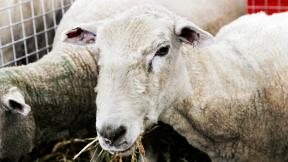
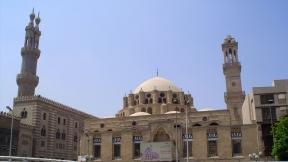
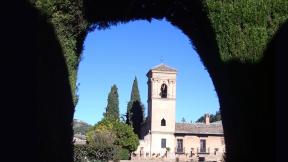
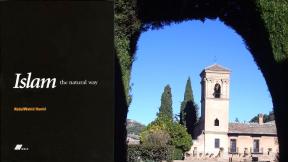
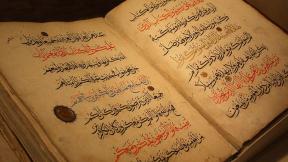


Add new comment